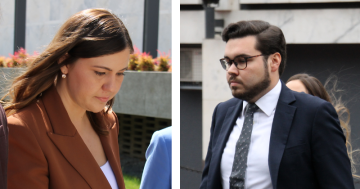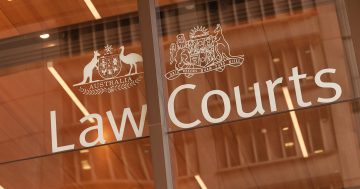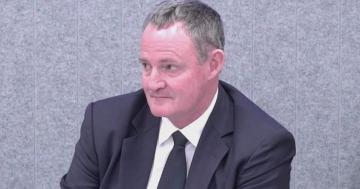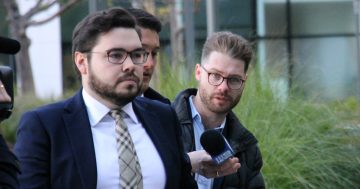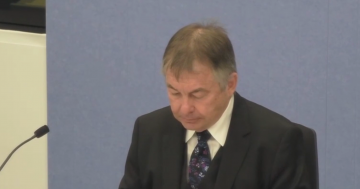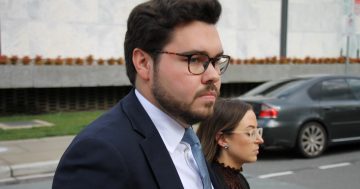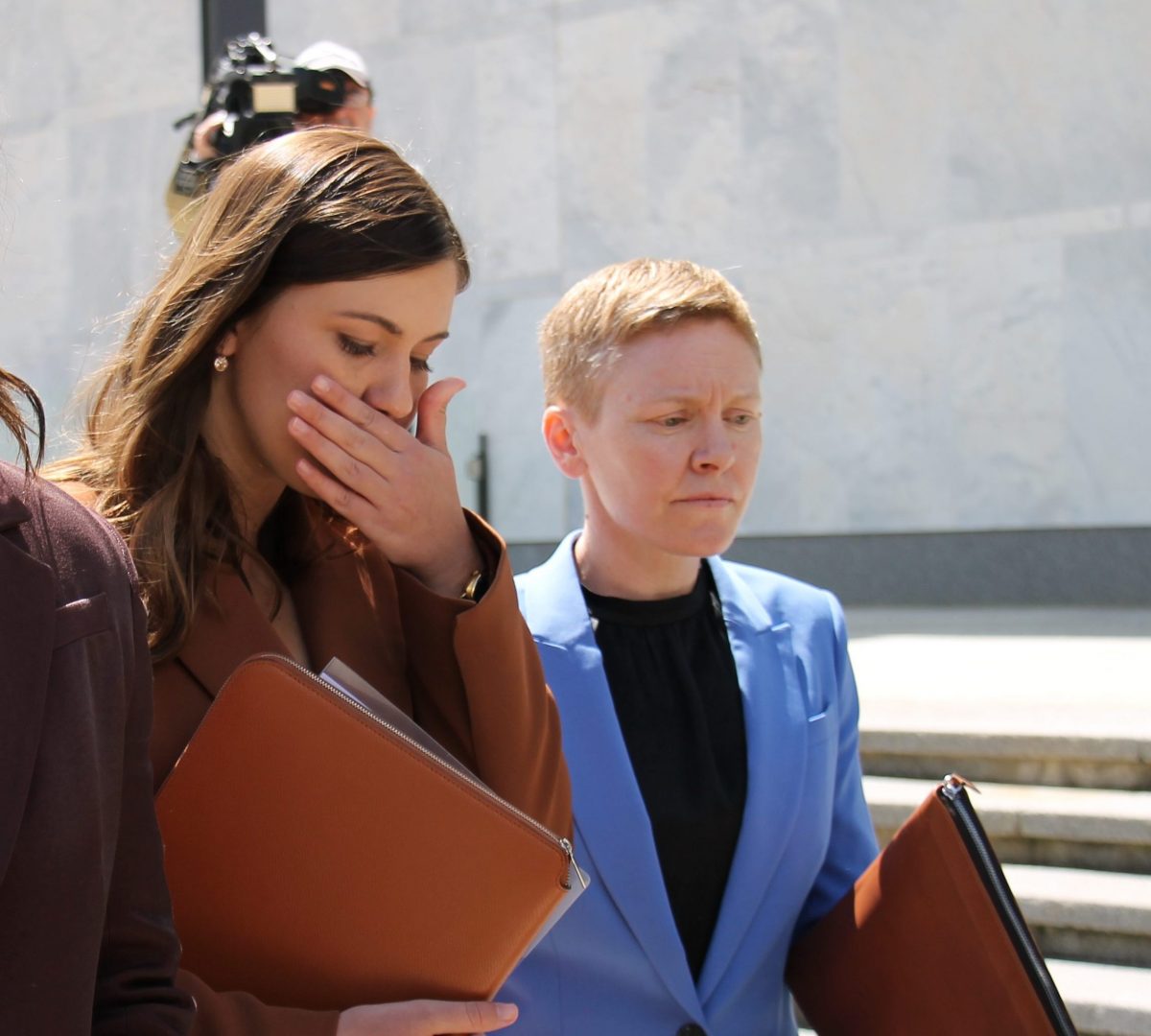
Brittany Higgins and Victims of Crime Commissioner Heidi Yates during the trial of Bruce Lehrmann in late October 2022. Photo: Albert McKnight.
ACT Chief Justice Lucy McCallum has chosen to keep some suppression orders from the case involving Bruce Lehrmann in place, citing fears they could harm complainant Brittany Higgins.
The case to remove the orders was made during a mention of the matter in the Supreme Court on Monday (17 April).
Chief Justice McCallum presided over the trial in October 2022, which ended in a mistrial.
While the matter had been listed to recommence on 20 February of this year, the Director of Public Prosecutions dropped the case in November.
However, in the period between when the case ended in a mistrial and it was dropped, an application was made to the court by Mr Lehrmann’s lawyers, which was heard behind closed doors.
At the time, Chief Justice McCallum chose to suppress the publication of its contents.
Her decision was largely influenced by the attention the case had attracted in the media.
“At the time I made those orders, my reason was that, in circumstances where as I have already indicated this trial has attracted an enormous amount of media attention, the prospect of a further media frenzy concerning a further application by the accused was one I thought was very likely to jeopardise the integrity of the trial,” Chief Justice McCallum said.
“Accordingly, I took it upon myself to make the orders in chambers without hearing from any party.”
She said since the prosecution had been discontinued, media intervenors and Mr Lehrmann’s senior counsel had submitted this order should now be revoked.
Counsel representing the media intervenors argued the interests and right of the media to report openly about “the full context of the proceedings”, including the full circumstances in which the trial had been discontinued, meant the order should be pulled.
Mr Lehrmann’s senior counsel said releasing the details could not threaten the integrity of the trial.
“[Counsel] also made a submission based squarely on, if I could put it this way, the competing reputational interests of the complainant and the accused,” Chief Justice McCallum said.
“He noted that, as the position stands, the public has heard the Director’s announcement that the prosecution has been discontinued, largely because medical evidence indicates that the continuation of the prosecution poses a real risk to the complainant’s life.”
Ultimately Chief Justice McCallum refused to lift this suppression order, citing concerns for Ms Higgins’ health.
“Based on my experience of the trial, which included the provision of a medical certificate when the complainant became unavailable to continue her evidence, my own observations of the complainant and the information provided to me by the Director yesterday concerning her current medical condition, I have no doubt that any further exacerbation of the level of media attention directed to her carries a risk to her life,” she said.
“My view on that issue is not altered by the fact that she herself has made press statements.
“I do not think that indicates that one can compartmentalise the areas in which she is vulnerable and the areas in which she is not.”
She said she didn’t want to contribute to the “media frenzy that has been this case”.
“Based on my assessment of the application and the affidavit, it is my firm view that publication of that material would give the media a new story or a new slant that would inevitably result in further harm to the complainant, and that is not a step I am prepared to take,” Chief Justice McCallum said.
However, Chief Justice McCallum did revoke the order, which had originally been in place to protect the integrity of the case after Ms Higgins was unavailable to continue her cross-examination during the trial. At the time, she had taken to the stand but did not return to the witness box for a week.
Chief Justice McCallum said she had chosen at the time to suppress the reason why Ms Higgins wasn’t available to protect Mr Lehrmann’s interests during the trial.
“It was submitted that if the jury learned that the complainant had become mentally unwell during (and potentially as a result of) the cross-examination, that might prejudice the accused’s right to a fair trial,” she said.
Given the trial has been discontinued, the order was revoked, meaning those reasons are now able to be published.
No findings have been made against Mr Lehrmann and he has maintained his innocence.
If you are experiencing mental distress, contact Lifeline on 13 11 14.












